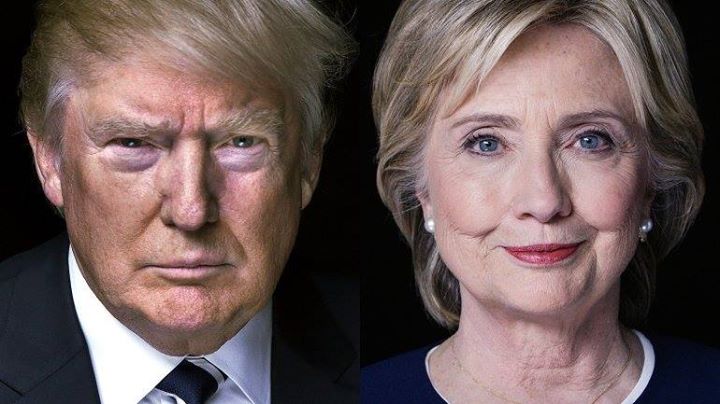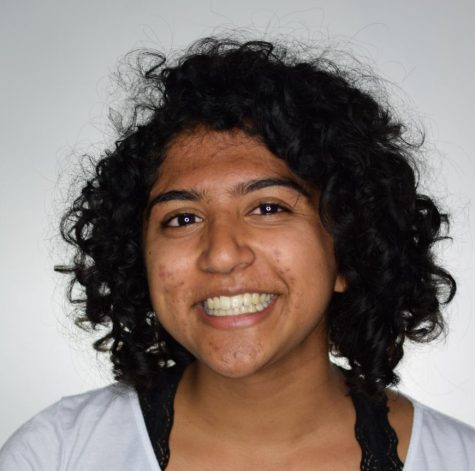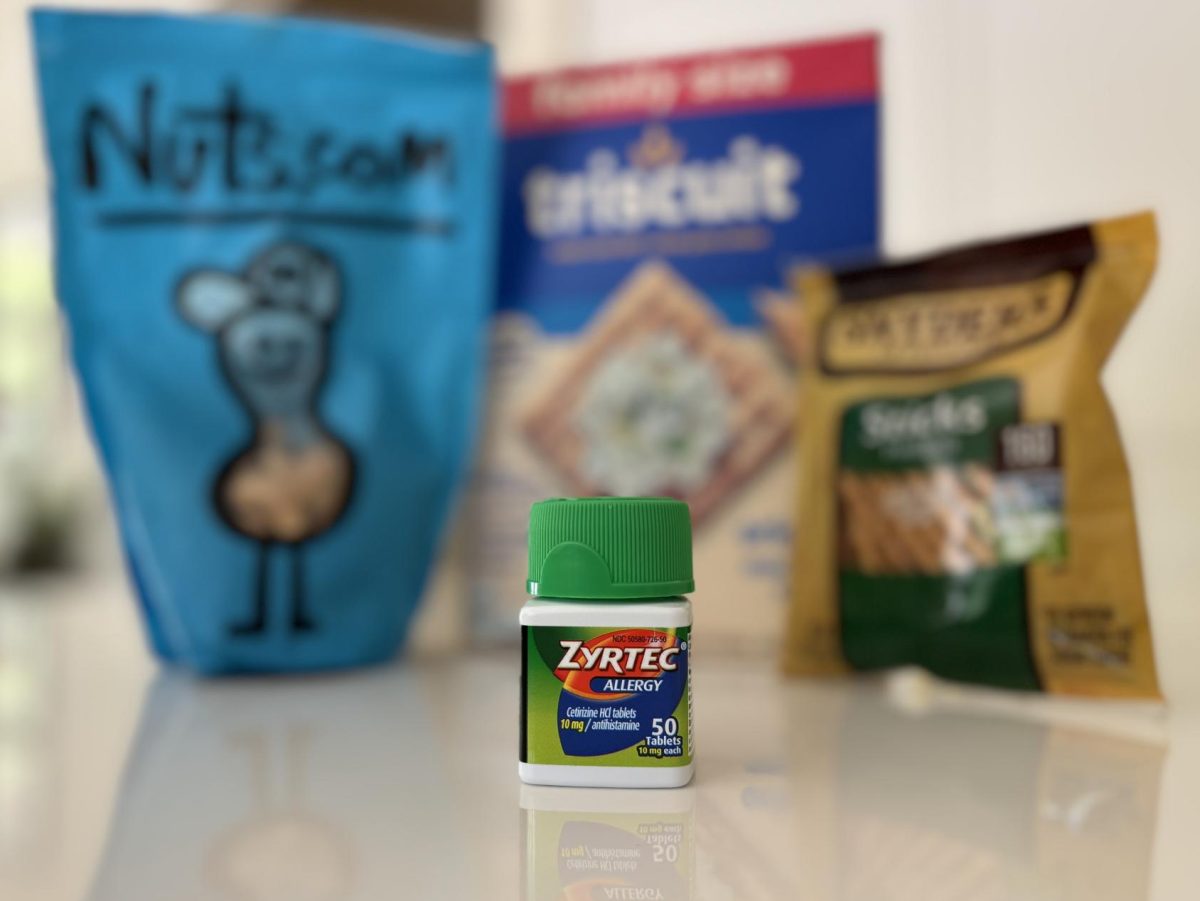2016.
The year that Michael Phelps set records (again).
The year that Leonardo DiCaprio won his Oscar (finally).
The year that a viral ice bucket challenge led to the discovery of the gene that causes ALS (go internet!).
But in reality, it sucked — big time. The messy, controversial election. The meme-worthy death of a gorilla at the Cincinnati Zoo. The not-so-uncommon sightings of killer clowns. Thirteen terrorist attacks in America so far this year. The police shootings all over the country.
2016 was one massive disappointment after another, with only a remarkably small number of positive things sprinkled in.
THE ELECTION
Crooked Hillary and Deplorable Donald.

Controversies ranging from Secretary Clinton’s private email server to Trump’s “locker room talk” plagued the election, which, to many, became more about the morals of the candidates than their policies. Senior Marcus Plutowski found the intense division between the parties extremely frustrating.
“The tone of this election has not been conducive to a functioning democracy,” Plutowski said. “It’s more like something you’d expect to see out of [a democracy] that is less than a decade old, not a 200 year old democracy that should supposedly have republican traditions that would prevent this deep sided division from ever taking place.”
On Nov. 8, 2016, over two hundred million Americans voted for the next president of the U.S. The people of America spoke, making Donald Trump the president-elect. Plutowski attributes his victory to the attitudes of liberal Americans.
“Trump himself might have been abrasive [and] aggressive, used [racial and cultural] slurs, but the left overall as a group has institutionalized the use of attacking people… their morality, [and] everything about them just because they disagree with them,” Plutowski said. “It’s been a slow build and a slow burn, but this is what it has come to, and that’s really why you got this outpouring of support for Donald Trump.”
HARAMBE
On May 28, 2016, a 17-year-old gorilla by the name of Harambe was killed after dragging around a three year old who had fallen into his enclosure. Harambe’s death caused a lot of controversy, sparking an eruption of countless memes and hashtags.
Junior Avik Jain believed Harambe memes helped to send a strong message.
“I initially saw #justiceforharambe as a direct satirization of “social justice” activism which leverages the virality of short video clips and hashtags in attempt to make political statements,” Jain said. “I don’t think most people who promote Harambe memes are actually protesting the killing; there have been petitions to file lawsuits against the zoo, but they have gained nowhere near the traction that memes have. The memes usually use an event which already occurred to criticize current issues or for light humor, rather than to make a statement about the incident itself.”
TERRORIST ATTACKS
From Orlando, Florida, to Nice, France, countless terrorist attacks have marred 2016. Senior Rachel Lau was on vacation in Nice, France, with her family after a big synchronized swimming competition. They joined the thousands of people celebrating Bastille Day, eating at fancy restaurants and enjoying the fireworks. Lau and her family went back to the hotel minutes before the terrorist carried out his plan.
“It was kind of surreal, like ‘how did this happen?’” Lau said. “There were so many police cars there … and I didn’t think something like this would happen.”
While the last major terrorist attack in California was in San Bernardino on Dec. 2, 2015, Lau says her first-hand experience of terrorism in another country hit home for her.
“[Most terrorist attacks] happen on the other side of the country and all of the wars don’t happen anywhere near California or Silicon Valley,” Lau said. “The fact that I was so close to one, it just makes it seem so much more real and it’s so much bigger of a problem than what people put it out to be.”
CLOWNS
A year ago, many people probably thought of clowns as innocent characters most often at circuses and birthday parties with red noses you could squeeze. However, in early August, a boy reported in South Carolina that two clowns tried to lure him into the forest. After that, multiple incidents and reports popped up all over the country, as well as in Canada and Great Britain, of clowns terrifying innocent victims. The sweet, childhood image of circus clowns that many people associate with suddenly vanished and was replaced with an evil, killer countenance. Senior Rani Sidhu was not scared of clowns before they were sighted and posted about on social media until she saw a clown when trick-or-treating.
“I got pretty paranoid for a while, just thinking that anyone out there dressed as a clown could be like a pedophile or like a kidnapper,” Sidhu said.
After her encounter with a clown, she got over her fear.
“He wasn’t really doing anything to them,” Sidhu said. “He was just following them around and looking all creepy. I don’t know if he was doing harm but it was just interesting.”
For junior Kavin Sivakumar, he was never and still is not afraid of clowns.
“I’m confident enough in my self-defense skills, so I can walk down alleys at night and not be afraid,” Sivakumar said. “If a clown approaches me, I’m ready to fight that clown.”
POLICE SHOOTINGS
“There’s always been this divide between certain races,” junior Pallavi Sripathi said. “Especially with the tensions of a new president-elect and the whole election, those segregations between races have really come out and people are acting on stereotypes where they assume that a certain race is more likely to be the cause of a crime.”
One particularly scarring shooting was that of the unarmed black behavioral therapist Charles Kinsey who was trying to calm down his autistic patient Arnaldo Rios Soto in Florida. In video footage from a cell phone, Kinsey was lying on the ground with his arms raised when he was shot in the leg by a police officer. This shooting among others sparked outrage across the U.S. Though the media often portrays the police at fault, many times it is hard to determine the true victim.
“From the perspective of the people, police shootings toward the African Americans [are] cruel and most likely unprecedented and in unneeded situations,” Sripathi said. “But at the same time, from the police side of things, they could actually have been using it in defense, so most of us don’t know the full story.”










